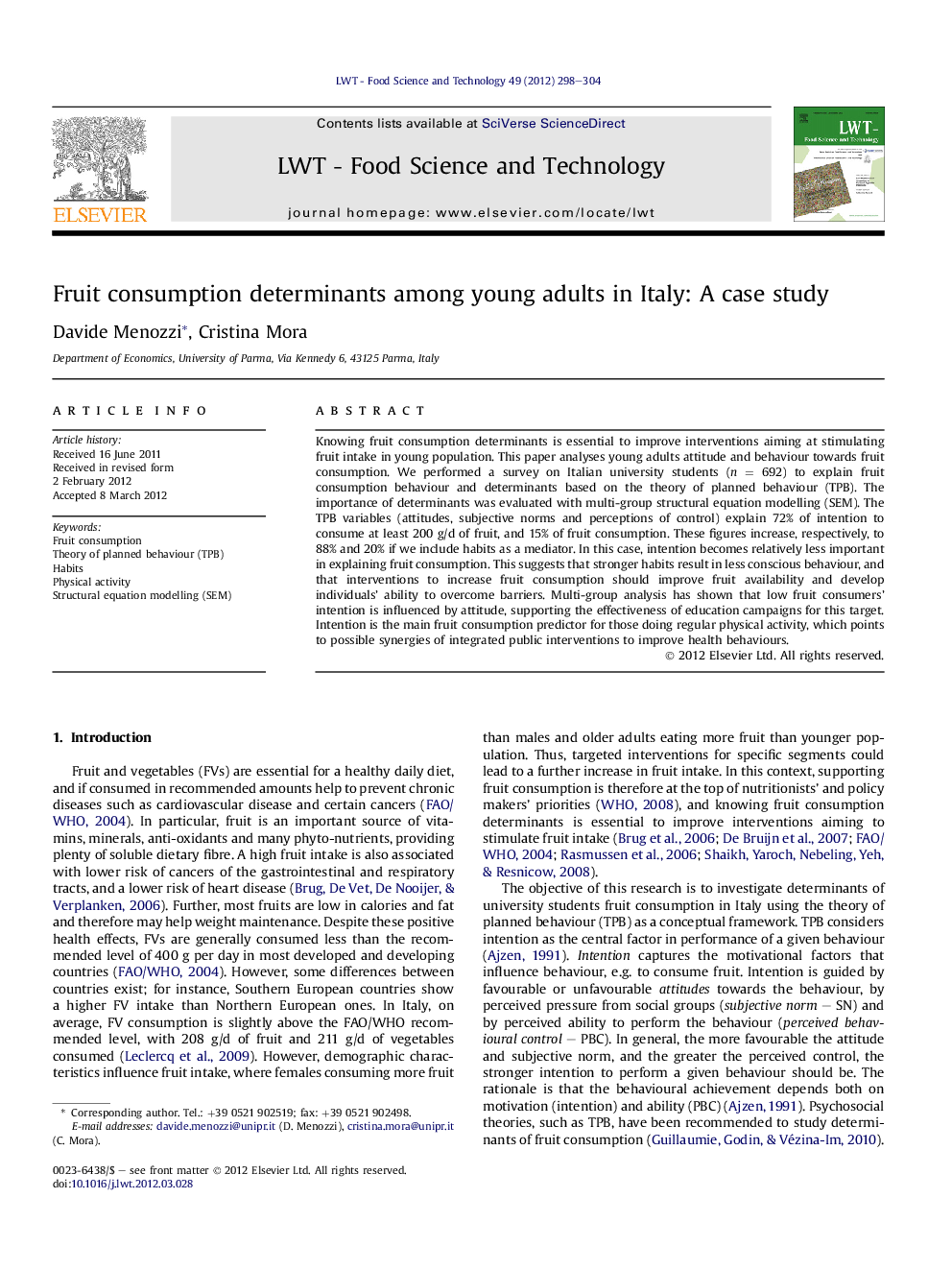| Article ID | Journal | Published Year | Pages | File Type |
|---|---|---|---|---|
| 4563983 | LWT - Food Science and Technology | 2012 | 7 Pages |
Knowing fruit consumption determinants is essential to improve interventions aiming at stimulating fruit intake in young population. This paper analyses young adults attitude and behaviour towards fruit consumption. We performed a survey on Italian university students (n = 692) to explain fruit consumption behaviour and determinants based on the theory of planned behaviour (TPB). The importance of determinants was evaluated with multi-group structural equation modelling (SEM). The TPB variables (attitudes, subjective norms and perceptions of control) explain 72% of intention to consume at least 200 g/d of fruit, and 15% of fruit consumption. These figures increase, respectively, to 88% and 20% if we include habits as a mediator. In this case, intention becomes relatively less important in explaining fruit consumption. This suggests that stronger habits result in less conscious behaviour, and that interventions to increase fruit consumption should improve fruit availability and develop individuals' ability to overcome barriers. Multi-group analysis has shown that low fruit consumers' intention is influenced by attitude, supporting the effectiveness of education campaigns for this target. Intention is the main fruit consumption predictor for those doing regular physical activity, which points to possible synergies of integrated public interventions to improve health behaviours.
► We analyse young adults attitude and behaviour towards fruit consumption. ► Habit is determinant of fruit consumption moderating intention–behaviour relation. ► Fruit consumption is not completely a conscious decision making process. ► Effective interventions should focus on environmental factors. ► Intention is the main fruit consumption predictor for those doing physical activity.
